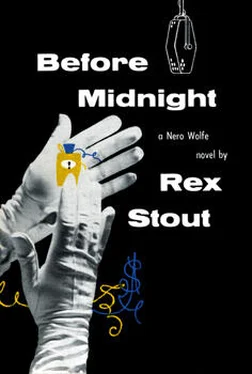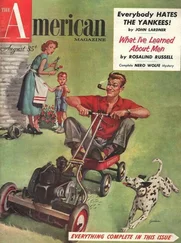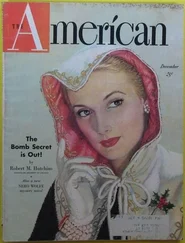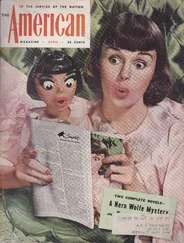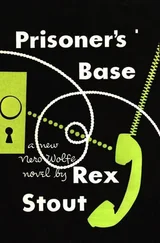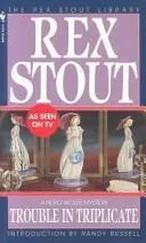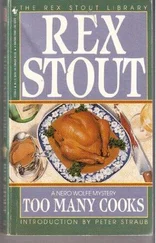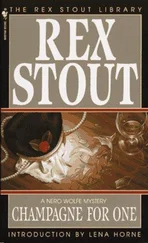“Was he dead when you left?” Cramer asked.
Wolfe nodded. “Yes, sir. I stayed for that.”
“He’s still dead.” Cramer is not a wag; he was just stating a fact. He pushed his chair back an inch, wrinkling the carpet. “It was cyanide. To be verified, but it was. We found a crumpled paper on the floor under the end of the couch. Toilet paper. Not the kind in your bathroom.”
“Thank you,” Wolfe said drily.
“Yeah, I know. You didn’t do it. You were with me. Goodwin wasn’t, not all the time, but I’m willing to be realistic. There was white powder left on the paper, and when we put a drop of water on a spot it had the cyanide smell. The glass seemed to have it too, but there was the smell of the drink.” He looked up at me. “Sit down, Goodwin. Do you know what the drink was?”
“No,” I replied, “but O’Garro said it was Pernod. He said he saw him pour it and put it down on the table when Hansen called to him. And when—”
“Damn you,” Cramer exploded, “you had the nerve to start in on them? You know damn well—”
“Nuts,” I said distinctly. “I asked no questions. He volunteered it. And when Assa was here this evening just before dinner he drank Pernod — or rather, he gulped it, and said it was his drink.”
“He was here? Before dinner?”
“Right. Unless Mr. Wolfe says he wasn’t.”
“What did he want?”
“Ask Mr. Wolfe.”
“No,” Wolfe said emphatically. “My brain is fuddled. Tell Mr. Cramer what Mr. Assa said and what I said. All of it.”
I got a chair and sat, and shut my eyes for a moment to get my brain arranged. I had had a long and strict training, but the past hour had shoved other details to the rear, and I had to adjust. I did so, opened my eyes, and reported. When I had got to the end, with Assa saying, “Very well,” and departing, I added, “That’s it. If we had a tape of it I’d welcome a comparison. Any questions?”
No reply. Cramer had stuck a cigar in his mouth and was chewing on it. “Go down to the office,” he said, “and get your typewriter and some paper. Tell Stebbins I said so, and take it somewhere and type that. All of it.”
“That can wait,” Wolfe said gruffly, “until we’re through here. I want him here.”
Cramer didn’t press it. He took the cigar from his mouth and said, “And then you phoned me.”
“Yes. As soon as Mr. Assa was out of the house.”
“Too bad you didn’t tell me what had happened. Assa would still be alive.”
“Perhaps.”
Cramer goggled. “By God, you admit it?”
“I’ll admit anything you please. I have had cause for chagrin before now, Mr. Cramer, but nothing to compare with this. I didn’t know that mortification could cut so deeply. One more stab and it would have got the bone. If Mr. Assa had had the wallet in his possession, actually on his person — then it would have been consummate. That would have finished me.”
“He did.”
“He did what?”
“He had the wallet. In his breast pocket. It has been identified as the one Dahlmann was carrying — sufficiently identified. There was no paper in it containing the answers.”
Wolfe swallowed. He swallowed again. “I am humiliated beyond expression, Mr. Cramer. Go and get the murderer. But lock me in here; I would only botch it for you. The rest of the house is yours.”
Cramer and I regarded him, not with pity. We both knew him too well. Naturally he was bitter, since he had got the stage all set for one of his major performances, with him as the star, and had actually started his act, only to have a prominent member of the cast, presumably the villain, up and on him, there before his eyes. It was certainly upsetting, but neither Cramer nor I was sap enough to believe that he was humiliated beyond expression — or anything else beyond expression.
Cramer didn’t go to pat his shoulder. He merely asked, “What if he wasn’t murdered? What if he dosed his drink himself?”
“Pfui,” Wolfe said, and I lifted a hand to hide a grin. He went on, “If he did, he had the paper of cyanide in his pocket when he left wherever he was to come here. With a choice of places for ending his life, I refuse to believe he selected the audience he knew he would have in my office — and with that wallet in his pocket.”
“Something might have happened after he got here.”
“I don’t believe it. He had had ample opportunity to talk with his associates beforehand.”
“He might have wanted to throw suspicion on someone.”
“Then for an intelligent man he was remarkably clumsy about it. Unless you have details unknown to me?”
“No. I think he was murdered.” Cramer dumped that by turning his hand over. “If I understand you, after he came and tried to get you to call off the meeting, you assumed he had killed Dahlmann and taken the wallet, and you intended to screw it out of him tonight. Was that it?”
“No, sir. You forget that I was not interested in the murder. I assumed, of course, that points relevant to the murder would be broached, and that was why I invited you to come. I also assumed that Assa had taken the wallet, because—”
“Sure you did,” Cramer blurted. “Naturally. Because he was certain you had sent the answers to the contestants, so he knew nobody else could have sent them, and the only way he could have known that was obvious.”
“Nothing of the sort.” Wolfe didn’t sound humiliated, but I’m not saying he hadn’t been. It was just that he had a good repair department. “On the contrary. Because he was eager to give me the credit for sending the answers, though he knew I hadn’t. If he hadn’t known who had sent them he wouldn’t have risked such a move, so he had sent them himself, getting them from the paper in Dahlmann’s wallet. I rejected the remote possibility that he had got them from the originals in the safe deposit vault, since he wouldn’t have dared go there alone and ask for that box. The brilliant stroke that saved the contest, for which he heaped praise on me, was his own. Therefore he had either taken the wallet himself or he knew who had, and the former was the more probable, since he said he had come to me on his own initiative and responsibility without consulting his associates. And of course he wanted the meeting canceled.”
“Why not?” Cramer demanded. “Why didn’t you cancel it?”
“Because I had a double obligation, and not to him. One was my obligation to my client, the firm of Lippert, Buff and Assa, to do the job I had been hired for, and the other was my obligation to myself, not to be hoodwinked.” He stopped short, tightened his lips, and half closed his eyes. “Not to be hoodwinked,” he said bitterly, “and look at me.”
He opened his eyes. “Hoodwinked, however, not by a Mr. Assa trying to save a perfume contest, but by a man who had already murdered once and was ready to murder again. I was assuming that Assa had taken Dahlmann’s wallet, but not that he had killed him; and anyway, that was your affair. Now it’s quite different. To assume that Assa was killed merely because someone knew he had taken the wallet and sent the answers to the contestants would be infantile. To assume that Assa knew that Hansen or Buff or O’Garro or Heery had taken the wallet and sent the answers, and that one of them killed him to forestall disclosure, would be witless. The only tolerable assumption is that Assa knew, or had reason to believe, that one of them had killed Dahlmann. That would be worth killing for, but by heaven, not in my office!”
“Yeah, that was cheeky.” Cramer took the cigar from his mouth, what was left of it. “Why just those four? What about the contestants?”
“Nonsense. Not worth considering. Send them home. Can you possibly think them worth discussing?”
Читать дальше
